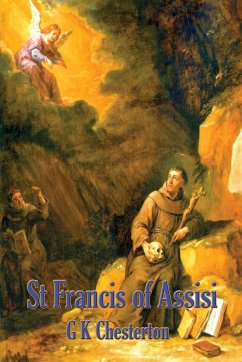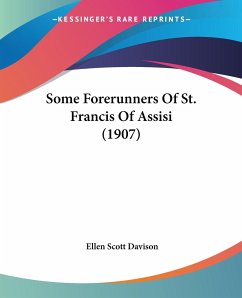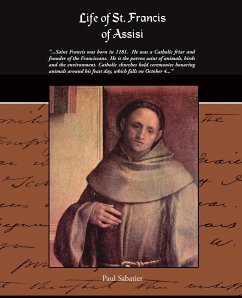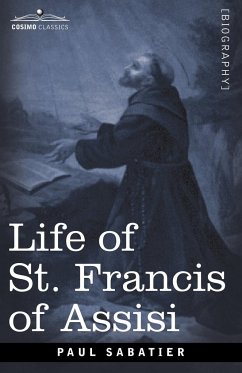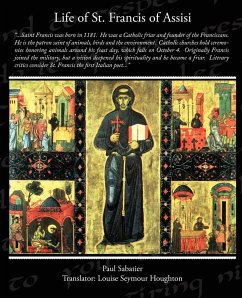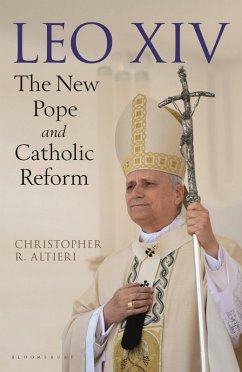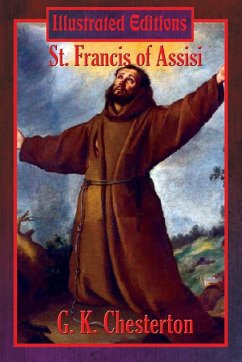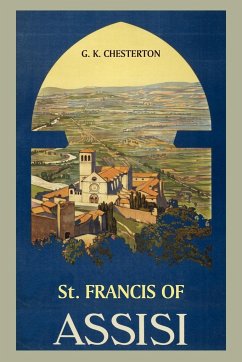
St. Francis of Assisi
Versandkostenfrei!
Versandfertig in 1-2 Wochen
13,99 €
inkl. MwSt.
Weitere Ausgaben:

PAYBACK Punkte
7 °P sammeln!
2010 Reprint of 1923 Edition. In this brilliant reflection on the poor friar of Assisi, G.K. Chesterton unfolds the life and times of St. Francis, from his conversion as a young man to his receiving of the Stigmata at the end of his life. While many modern biographers stumble in their effort to grasp the essence of the saint, Chesterton shows that Francis' entire life, his prayer, his poverty, his asceticism, his love of creation, and all his eccentricities, flowed from his profound love for Christ and all men. In Chesterton's colorful prose, St. Francis shines with the splendor of sanctity an...
2010 Reprint of 1923 Edition. In this brilliant reflection on the poor friar of Assisi, G.K. Chesterton unfolds the life and times of St. Francis, from his conversion as a young man to his receiving of the Stigmata at the end of his life. While many modern biographers stumble in their effort to grasp the essence of the saint, Chesterton shows that Francis' entire life, his prayer, his poverty, his asceticism, his love of creation, and all his eccentricities, flowed from his profound love for Christ and all men. In Chesterton's colorful prose, St. Francis shines with the splendor of sanctity and calls each of us to the same intense and animating love for God and His people.




